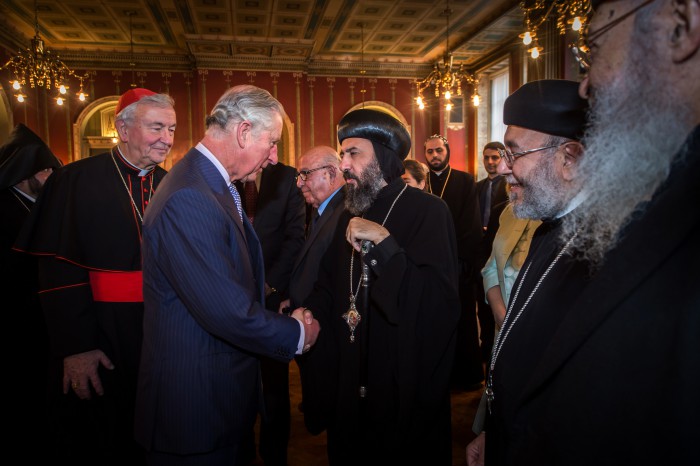21st December 2015
Remembering Middle-Eastern Christians


As we celebrate Christmas, it is right to think of those Christian families who will find it difficult to enjoy the good cheer that we take for granted at this time. They are those who are being persecuted or discriminated against for their faith, who are refugees because they were forced to flee for their lives from those like Daesh that would kill them, who no longer have a place that they can call “home”. Their plight, especially of the many Christian communities under threat in the Middle East, was highlighted by a recent conference at the Vatican called “Under Caesar’s Sword”.
Several of the participants, most notably those from the region, led by the Eastern Church Patriarchs Louis Raphael I Sako and Mor Ignatius Youssef III Younan, said that one of the toughest aspects of life for persecuted Christians in countries like Iraq and Syria was the sense that they were forgotten, abandoned. They asked not only that fellow Christians elsewhere in the world should pray for them, but that all people of goodwill would continue to speak out about them and their difficulties.
They are right. Without memory we are lost. So I was pleased to see recent high profile events in London that did just that – remembered the plight of persecuted Middle Eastern Christians, and called for action to protect them and help them.
The first was at the last Prime Minister’s Question Time in the House of Commons before Christmas, when the Prime Minister was asked about persecuted Christians. In his answer, he said that “we should do everything we can to defend and protect the right of Christians to practise their faith the world over. That is an important part of our foreign policy.” The plight of persecuted Christians is raised regularly in Parliament by members of all political parties. This was a clear statement from the Prime Minister that they are not forgotten.
The second event was an Advent reception hosted by Cardinal Nichols at Archbishop’s House in London. HRH The Prince of Wales was the guest of honour. Representatives from the Chaldean Catholic, Syriac Catholic, Maronite Catholic, Coptic Orthodox, Armenian Apostolic and Greek Catholic Melkite Churches were present. The Prince also met guests and representatives from charities including Iraqi Christians in Need, Friends of the Holy Land, Aid to the Church in Need and Jesuit Refugee Service. The gathering heard choral pieces by the Chaldean Church’s adult and children’s choirs. The event concluded with intercessory prayers for Christians and other minorities suffering persecution in the Middle-East.
Both His Royal Highness and Cardinal Nichols spoke. The Prince of Wales said that the suffering of Christians in the Middle East, alongside that of people of all faiths caught up in the region’s conflicts, “is symptomatic of a very real crisis which threatens the very existence of Christianity in the land of its birth… Consequently, the greatest challenge we face is how to ensure that the spiritual and cultural heritage of Christianity in the Middle East is preserved for future generations – quite apart from doing all we can to provide practical support to those who are persecuted.” Cardinal Nichols reminded the gathering that: “many who are not Christians are being slaughtered: indeed the majority are Muslims and Yazidis. But at this time of Christmas and in this country there should be a particular concern for those who suffer for the name of Jesus Christ.”
May all of us at the British Embassy to the Holy See take this opportunity to thank everyone who has read this blog over the last year on Twitter, LinkedIn, Vatican Insider or the other platforms where it can be found, and especially those who have responded and commented. We wish you all a merry and tranquil Christmas and happy New Year.
Thank yo, dear Ambassador, for the timely comment regarding the suffering of those persecuted for their Christian faith in the 21st c.
Tamara Grdzelidze